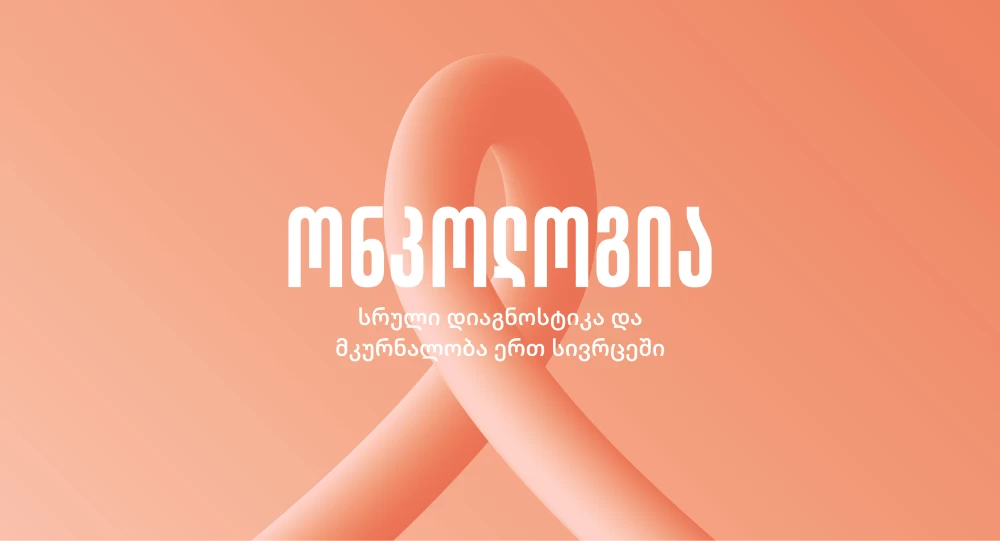Oncological diseases – complete diagnosis and treatment in one space

A large part of society still considers the diagnosis of oncological diseases as a verdict. Unfortunately, cancer pathologies pose a great threat indeed to our health and life, however, thanks to the advances in modern medicine, the number of cancer cures is increasing significantly. It should be noted that oncology is a branch of medicine that is developing at a particularly fast pace all over the world, certainly including Georgia.
High-quality service is of great importance for the successful treatment of tumors. High-quality service, along with the competence of a doctor, implies the involvement of the latest technologies and a systematic approach in the process of diagnosis and treatment. One of the main priorities of the Todua Clinic is to offer the highest standard of services to patients. Therefore, the medical center constantly introduces innovative technologies and new diagnostic and treatment methods necessary for systemic treatment.
A team of professional doctors examines the clinical case of each patient at a Multidisciplinary Council, where a decision on treatment tactics is made jointly, combining the opinions of various specialists in the field.
Table of Content
Oncology - treatment methods
Oncological diseases require full diagnosis, complex treatment, and constant monitoring. Therefore, in order to save time and effort, it is especially important for an oncology patient to receive complete medical services in one place, starting with routine laboratory analyses and consultations with specialists in various fields and ending with such high-tech services as genetic studies, Positron Emission Tomography (PET/CT), Endocytoscopy, Interventional Radiology, Transbronchial Biopsy, Laparoscopic Surgery for Cancer, Immunotherapy, and Radiosurgery.
Department of Oncology and Hematology offers patients the treatment of solid and hematological tumors in a comfortable and pleasant environment, where a team of professional doctors and nurses constantly cares for the patient's health and well-being and provides high-quality modern medical services in line with international standards.
Depending on the diagnosis, patients are treated with chemotherapy, hormone therapy, targeted therapy, immunotherapy, or a combination thereof. It is important that the treatment, as well as the side effects related to it, are managed both on an outpatient basis (day hospital) and, if necessary, in an inpatient setting. The latest international protocols, regimens, and medications, which are updated and improved every year, allow us to significantly reduce the side effects of the treatment, and increase the recovery rates and life expectancy in our patients.
From diagnosis to rehabilitation - what stages does the patient go through in the Todua clinic
We present to you the stages that the patient will go through in the Todua clinic from diagnosis to treatment.
Diagnosis of oncological diseases
Obviously, the prerequisite for effective treatment is the correct diagnosis - it is necessary to accurately determine the morphological type of the tumor, its localization, and spread and establish the correct staging. This is crucial for choosing the right treatment strategy. To do this, a whole range of laboratory and instrumental studies is carried out in the Todua Clinic. Access to various examinations helps specialists to be able not only to establish a complete picture of the pathology but also to accurately assess the dynamics of treatment results.
Todua Clinic has been maintaining a leading position in the field (and not only) of radiology for many decades. Effective computed Tomography, Magnetic Resonance Imaging, Ultrasound, Endoscopy, and other instrumental examinations are no longer surprising, but what is most important, all the machines presented in the center are ultra-modern and innovative software (the so-called artificial intelligence) is integrated into each, which makes it possible to ensure highly precise interpretation and detailed evaluation of both structural and functional changes in the body.
Positron Emission Tomography is also performed at the Todua Clinic – an examination that is considered the gold standard for diagnosing oncological diseases today. Through it, it is possible to detect tumor cells and tissues at an early stage, determine the degree of spread of oncological disease, differentiate between benign and malignant tumors, select the best location for biopsy, evaluate the effectiveness of treatment, etc.
Laboratory tests are of no less importance for the discovery of oncological pathologies or the study of diseases. The technological base of the Todua Clinic is a guarantee of the highest quality of this type of examinations.
The clinic has a Pathomorphological Diagnostic Laboratory is equipped with modern LEICA systems and digital microscopes. This Department reveals and established the tumor histogenesis and primary tumor site, studies the properties of tumor cells and observes their changes, establishes the sensitivity of tumor tissues to hormonal and chemotherapeutic drugs, etc.
The Todua Clinic has a Laboratory of Molecular Diagnostics and Oncogenetics, in which it is possible to determine various types of congenital and acquired genetic mutations, as well as genetic susceptibility to various human diseases. The results of the examination conducted here help oncologists and therapists to determine how effective targeted therapy will be for a particular patient and, in general, which treatment scheme will be the most optimal for him/her.
Treatment of oncological diseases
After making an accurate diagnosis, a Multidisciplinary Team develops the treatment tactics. An oncologist, an oncosurgeon, a radiation oncologist, a radiologist, a morphologist, a physiotherapist and other specialists discuss all individual cases at a conference and jointly choose the most effective treatment method for a specific patient. Such meetings have a systematic character in order to assess the patient's condition and, if necessary, to make changes in the treatment scheme. A multidisciplinary approach and constant monitoring ensures that possible errors and any other subjective factors are minimized.
In the Todua Clinic, it is possible to perform almost all the medical procedures that are available in the world's leading medical centers. Radiation Oncology is one of the successful departments of Todua Clinic, where many modern methods of treatment are being implemented. The department is equipped with two latest linear accelerators of the VARIAN company – TRUEBEAM and EDGE radiosurgery system. The latter combines both radiotherapeutic and radiosurgical techniques. VARIAN's fast system reduces the duration of the procedure, and the high quality of the image allows for maximum accuracy of irradiation of the target area, so as not to damage healthy organs and tissues. The department is headed by radiation oncologist Natalia Jankarashvili, one of the most qualified radiation oncologists in Georgia.
Radiation therapy is often used in combination with other treatments, including chemotherapy, hormone therapy, immunotherapy, and surgery. Different types of therapies are performed in the Todua Clinic both as outpatients and as inpatients.
Clinical Oncology Department serves inpatients.
Inpatient services allow treatment to be carried out under the constant supervision of highly qualified medical personnel, which significantly reduces expected complications and helps to cope with the treatment of complex diseases. In some complex cases, it provides an opportunity to conduct specific treatment for patients and manage treatment complications.
Only in the Todua clinic it is possible for patients to undergo targeted oncological treatment together with adjuvant-maintenance therapy and to undergo rehabilitation and symptomatic management after chemotherapy or radiation therapy. The latest diagnostic-laboratory and instrumental studies in the medical center allow a multidisciplinary team of highly qualified professionals to dynamically assess the condition of patients and monitor the results of treatment.
Surgery is one of the leading methods of treatment of oncological pathologies.
Oncosurgical interventions require special qualifications of the surgeon. That is why well-known onco-surgeons with many years of experience and the appropriate profile serve patients in the Todua Clinic for surgical treatment.
More than 1000 oncological surgeries of different localization and complexity are performed in Todua Clinic every year, including abdominal ocosurgery, gynecological oncosurgery, urological surgery, neurosurgery, head and neck oncosurgery, surgical proctology, skin and soft tissue oncopathology surgery and others.
Like the world's leading medical centers, our clinic is focused on organ-preserving, minimally invasive, laparoscopic techniques as much as possible. Such interventions are less traumatic for the patient, therefore dramatically reducing the hospitalization period and the risk of complications. In addition, special attention is paid to restorative, reconstructive and plastic surgeries, which are especially important for oncology patients.
Finally, according to the recommendation of the World Health Organization, cancer treatment should be carried out only in those clinics that are equipped with adequate diagnostic and treatment facilities, staffed by appropriately trained, highly qualified staff working in multidisciplinary teams, with a clearly defined role and strictly allocated functions. Todua Clinic is considered as such a clinic throughout the region.

